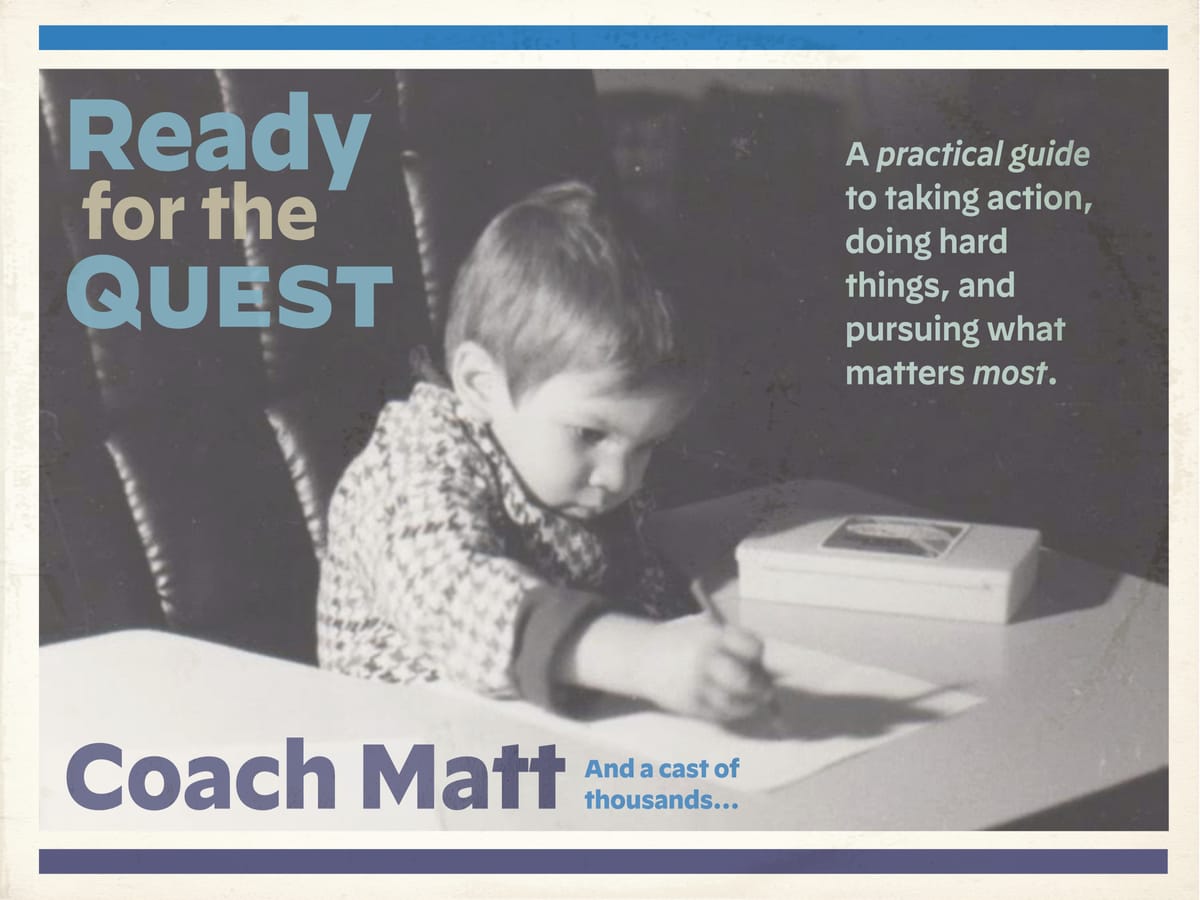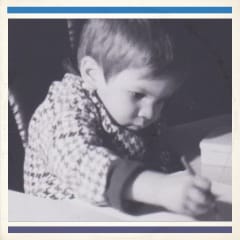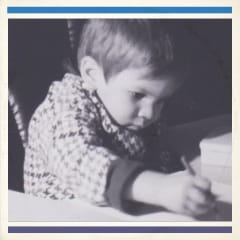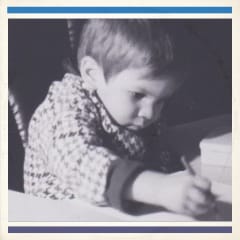Ready for the Quest
NOTES // Chapter Six, part 1
00:20 // "The quality of light by which we scrutinize our lives..."
We begin with David J. Glover reading from Audre Lorde's 1985 essay "Poetry Is Not A Luxury," which can be found in the book Sister Outsider.
About Audre Lorde:
A self-described “black, lesbian, mother, warrior, poet,” Audre Lorde dedicated both her life and her creative talent to confronting and addressing injustices of racism, sexism, classism, and homophobia.
Please read the rest of that bio here →

"Women are powerful and dangerous."
In fact – I'll just show you the whole paragraph...
The quality of light by which we scrutinize our lives has direct bearing upon the product which we live, and upon the changes which we hope to bring about through those lives. It is within this light that we form those ideas by which we pursue our magic and make it realized. This is poetry as illumination, for it is through poetry that we give name to those ideas which are — until the poem — nameless and formless, about to be birthed, but already felt. That distillation of experience, from which true poetry springs, births thought as dream births concept, as feeling births idea, as knowledge births (precedes) understanding.
Oh my god! My heart just bursts when I read that.
And also when I read this – "Do not let me die a coward, mother. Nor forget how to sing." (Read more.)
"Poetry Is Not A Luxury" can also be found in The Selected Works of Audre Lorde, which is edited by Roxanne Gay.
3:06 // "We have special guests..."
My dear friend, Michelle Schroeder Lowrey, introduced my to Positive Psychology over coffee one day and changed my life. I read and listened and read and my brain was on fire. So I started doing what I always did when I had a burning need to understand something about how the world works - I starting making a show about it.
But – there's a little more to the story than that.
I was already making a play when Michelle and I had that fateful coffee date. It was called Demagogues! and if you're thinking,"Exclamation point? Does that mean it was a play with songs?!?" you are 110% correct. And that sounds like fun, but the truth is that my heart just wasn't in it. Jay Weitz interviewed me at the time and wrote about the whole story here →

Look - do you see what's tattooed on Elena's arm?
There's one thing that Jay didn't mention in the story, because I didn't talk about it. In early 2019, our dog, – Beckett – died quite suddenly & shockingly. And that's not something I'm going to get into here, except to say that we loved her very much and it was incredibly painful. And so my joke became, "Well, yes, my dog died. And so I'm writing a show about how to be happy.
There she is →
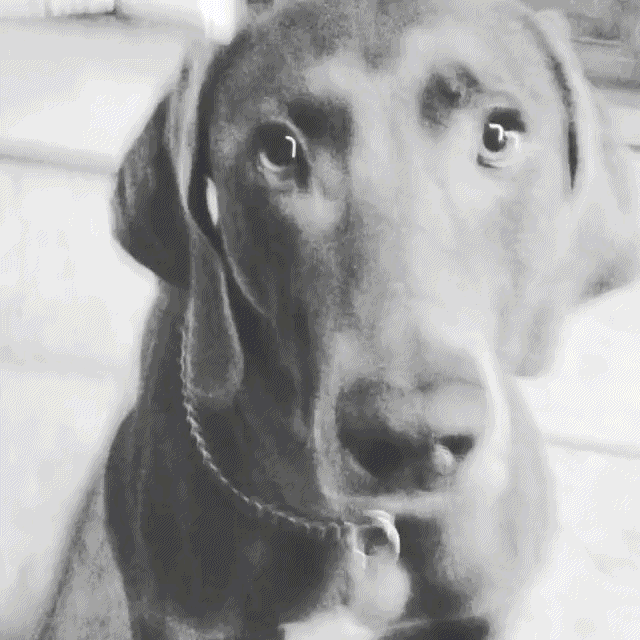
Oh, my heart.
And I'm not sure why I'm telling you this now except that it's a part of the story of that play. And I was far from the only person involved in the process who was dealing with something difficult. We were all facing down death and depression and other demons. And so we really really needed what the material had to offer.
The result of all that research and turmoil – and a lot of very difficult creative work from everyone involved – was a gentle and joyful play called Remain in Light.
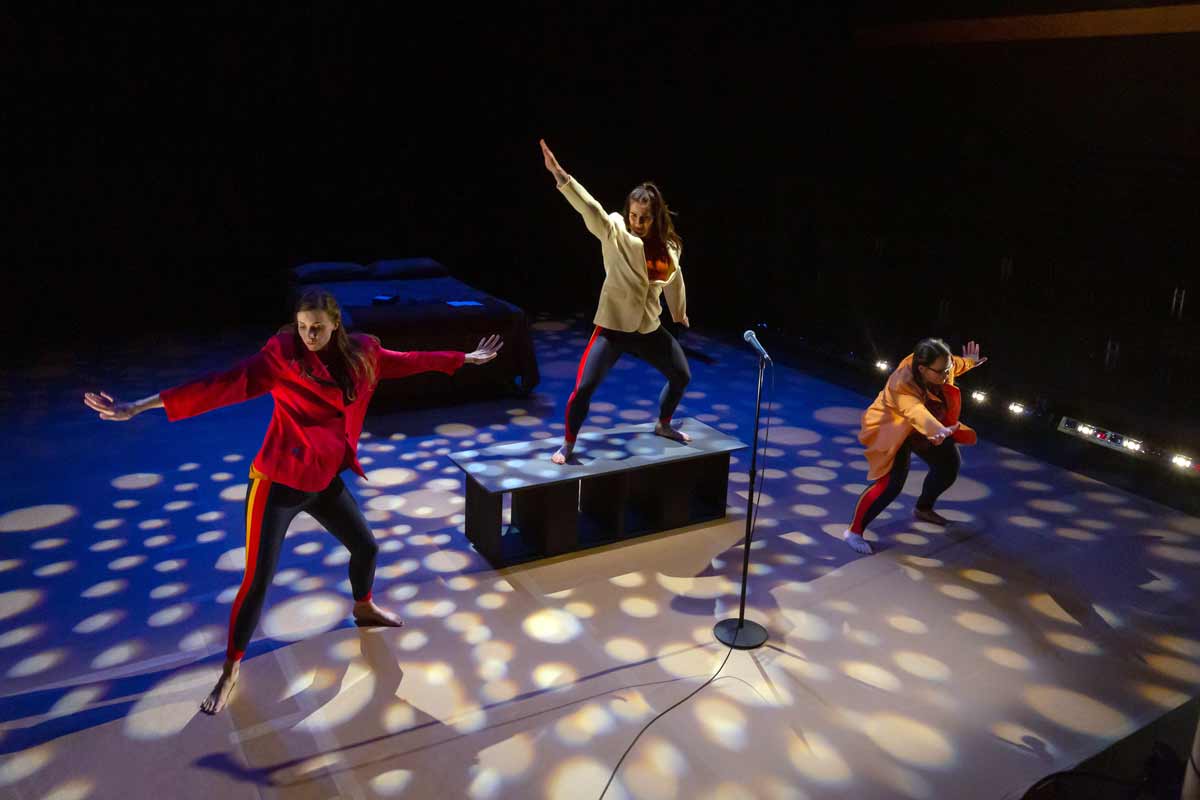

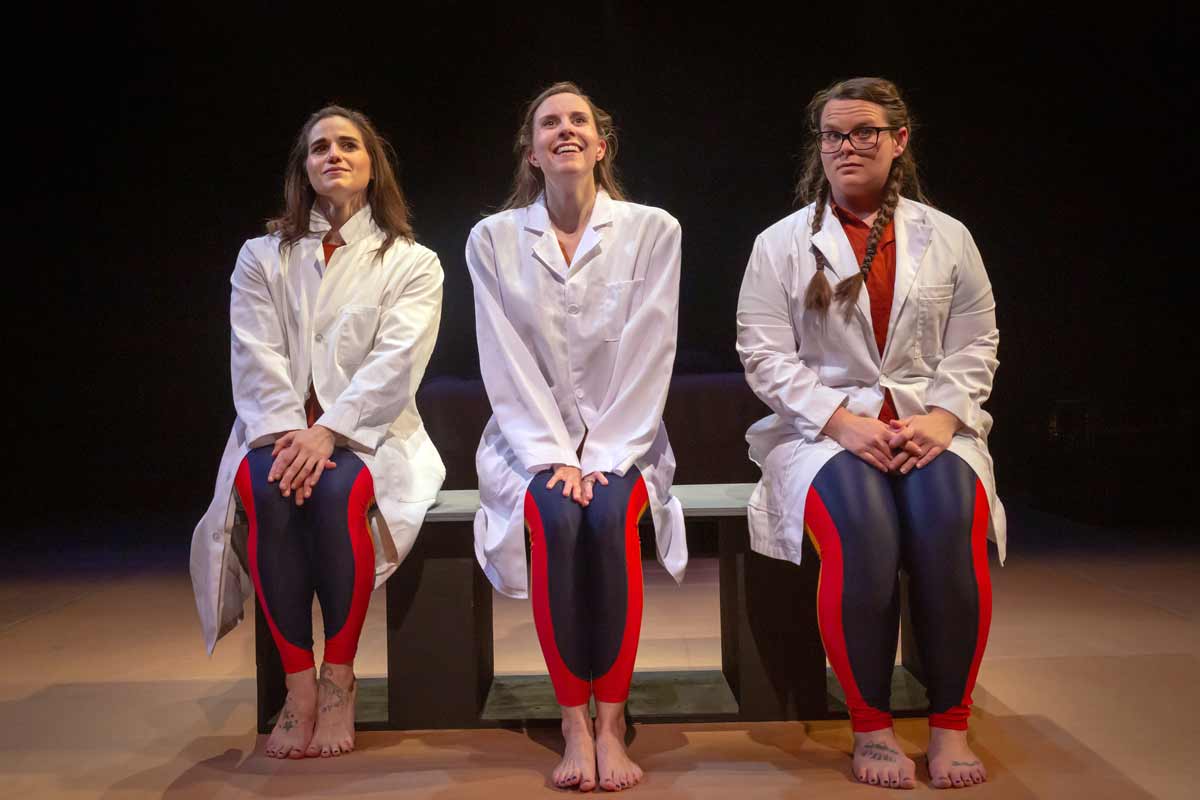
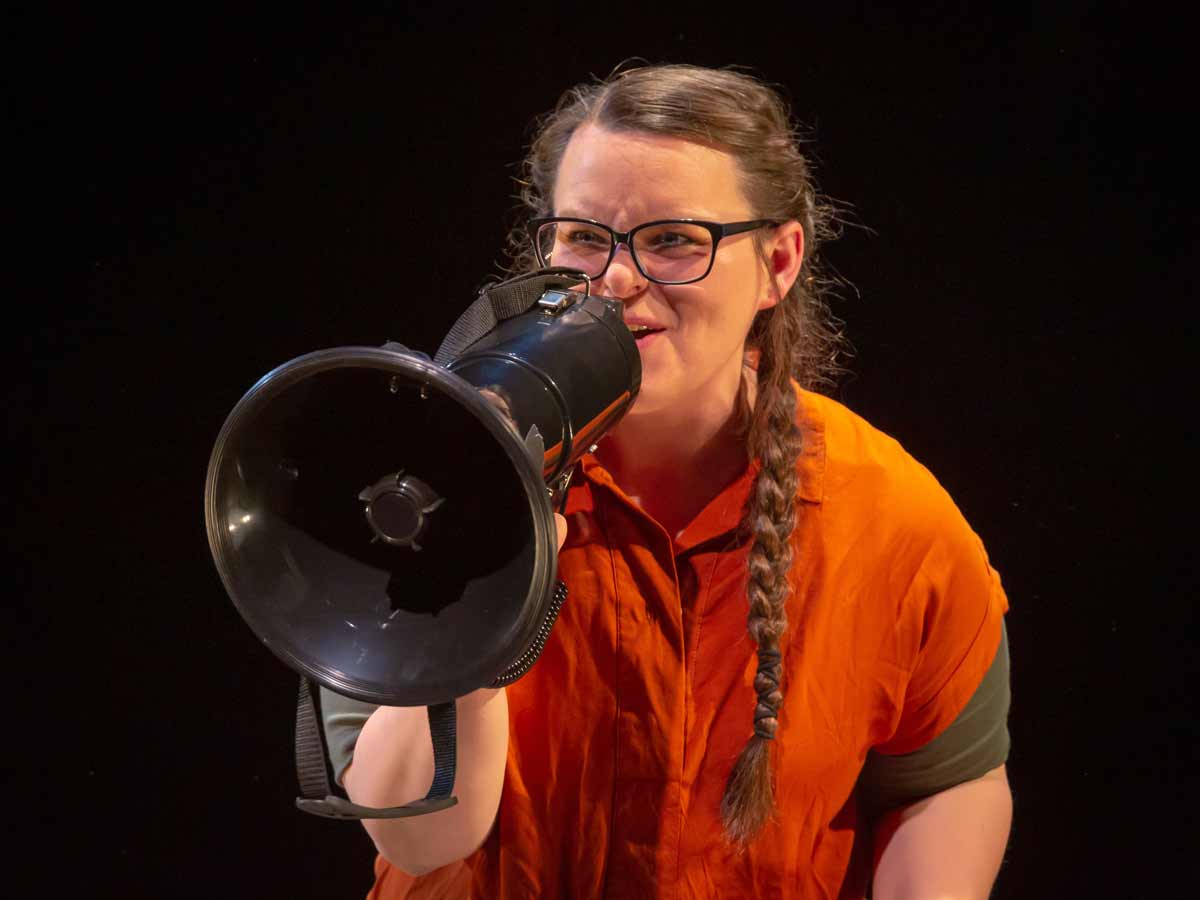
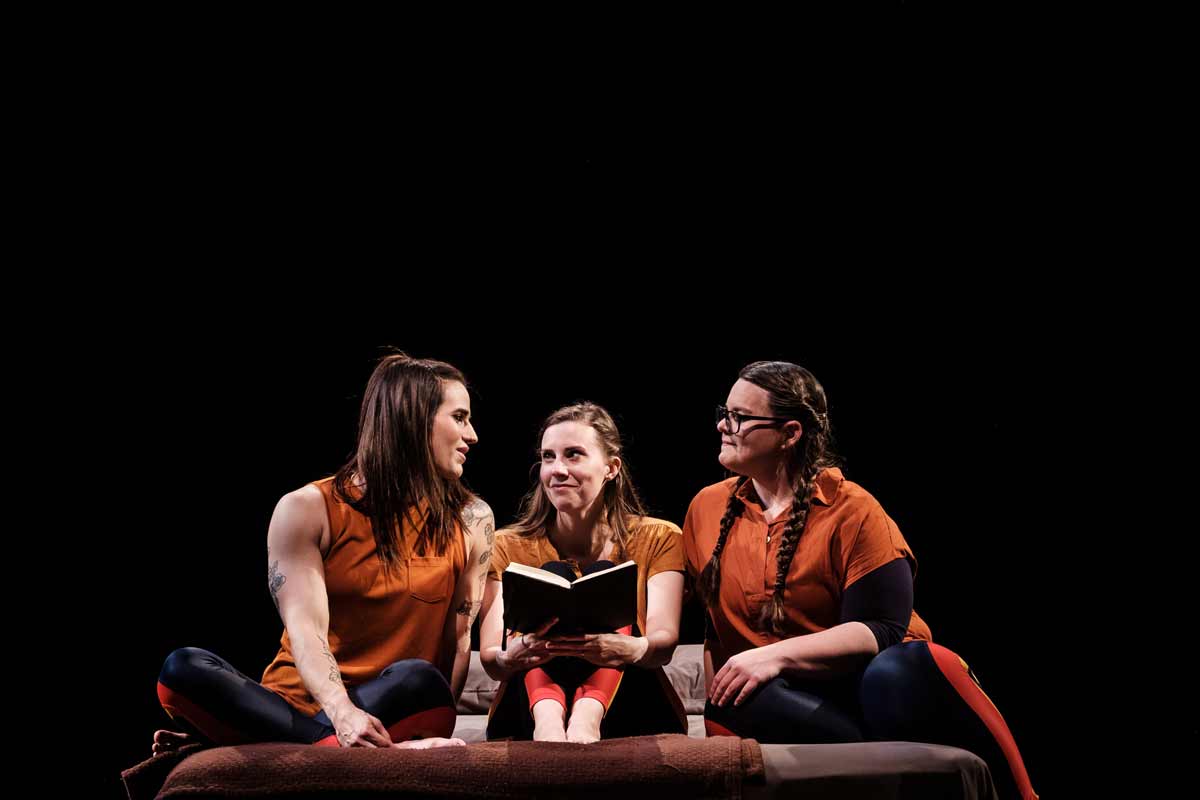
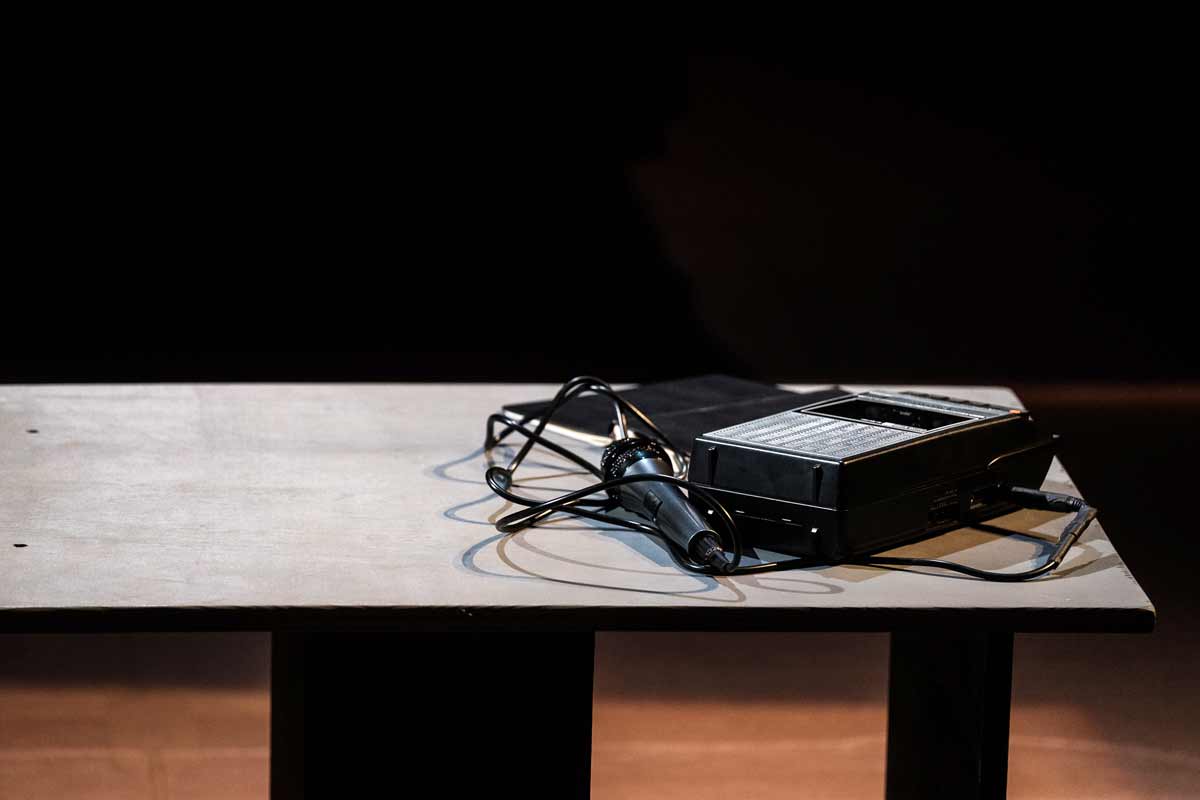
Photos by Matt Slaybaugh and Alex Abejuela.
4:26 // 🎵 music
In 2017, I started my exploration into the wonderful world of Japanese environmental/ambient music. One of the first records I got was Music for Nine Post Cards by Hiroshi Yoshimura.
From the Light in the Attic website:
Home recorded on a minimal setup of keyboard and Fender Rhodes, Music for Nine Post Cards was Yoshimura’s first concrete collection of music, initially a demo recording given to the Hara Museum of Contemporary Art to be played within the building’s architecture. This was not background music, in the prior Japanese “BGM” sense of the word, but “environmental music,” the literal translation of the Japanese term kankyō ongaku [環境音楽] given to Brian Eno’s “ambient” music when it arrived in late-70s Japan.
We played the fourth track, "Dance PM" to accompany a climactic scene in Remain in Light, a long, movement-filled sequence about uncertainty.
So, the music you're hearing here (and you'll hear it again later) is my own restatement of "Dance PM." Different rhythm, different key, (barely) different sounds, and aiming at the same target.
4:27 // "Reality is like a river..."
And now you'll hear the voices of (in order) Dakota Thorn, Whitney Thomas Eads, and Elena M. Perantoni.
This starts with Dakota quoting Pema Chödrön, from her audio program, Noble Heart. (Available at the link below and on Audible.
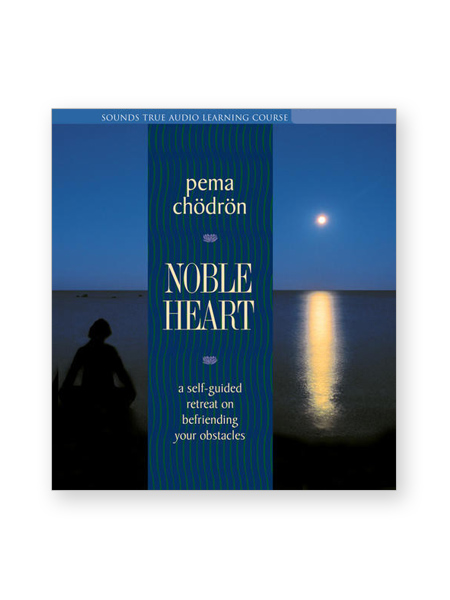
Even though it's not a book, Noble Heart makes the list. I have listened to it countless times, both because I treasure its wisdom and because Pema has such a calming, comforting presence. If you want to start your day with something in your ear, this is a great option.
I also really like Fail, Fail Again, Fail Better, which is a recording of Pema speaking at a commencement ceremony for Naropa University. The title is a Samuel Beckett quotation, so how could I not? It's from the 1983 story "Worstward Ho."
And, incidentally or not, we did quote Beckett in Remain in Light – "I can’t go on. I’ll go on."
7:03 // "Dr. Carol Dweck, from Stanford University..."
Dr. Carol Dweck published Mindset: The New Psychology of Success in 2006. Under the title it says "How we can learn to fulfill our potential." Perfect book for me, I'd say.
If you want to do a very quick exploration of your mindset about a topic or a challenge, here's a post for you →
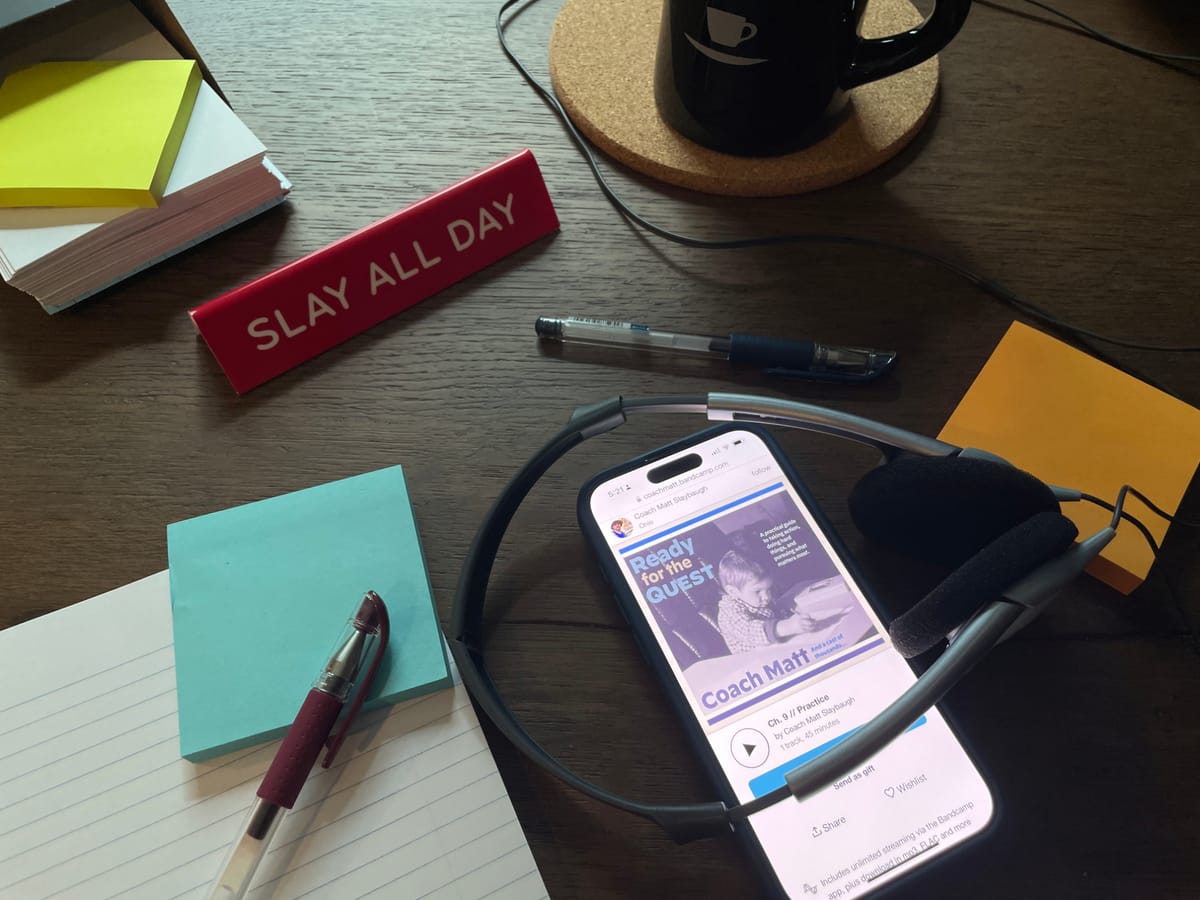
10:13 // "As Diamond Dallas Page quotes Henry Ford..."
Supposedly, Henry Ford said, "Whether you think you can or you think you can't – you're right." I wonder if that's true. Either way – he was a jazz-hating antisemite, so let's just stop glorifying that guy.
I heard it from Diamond Dallas Page, who you may have read about in the notes from Chapter Two.
11:39 // "Change is hard. New things are hard."
There's Lonelle Yoder as the evil voice of Resistance.
12:14 // "Fixed minds focus on outcomes..."
Here's Elena, Dakota, and Whitney, from Remain in Light again, and this section is a synthesis of Dr. Dweck's and Pema Chödrön's ways of talking about fixed minds.
15:32 // "You haven't reached your goals, so far..."
This is Shanelle Marie, with fabulous news from Seth Godin's The Practice.
21:56 // 🎵 music
For this music, I just riffed that bum-bum-bummm thing when I was recording myself speaking. Later on, I used Ableton to transcribe a melody from that recording and added an arrangement to turn it into the music you hear. Why? I used to really enjoy the high-drama presentation of the classic NFL films. Films like this →
It's practically operatic!
21:56 // "May 7th, 2011. NBA Eastern Conference Semi-Finals..."
This is Drew Eberly (songwriter, actor, and Available Light company member) telling a story about Rajon Rondo.
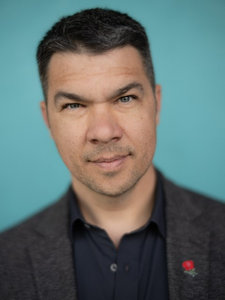
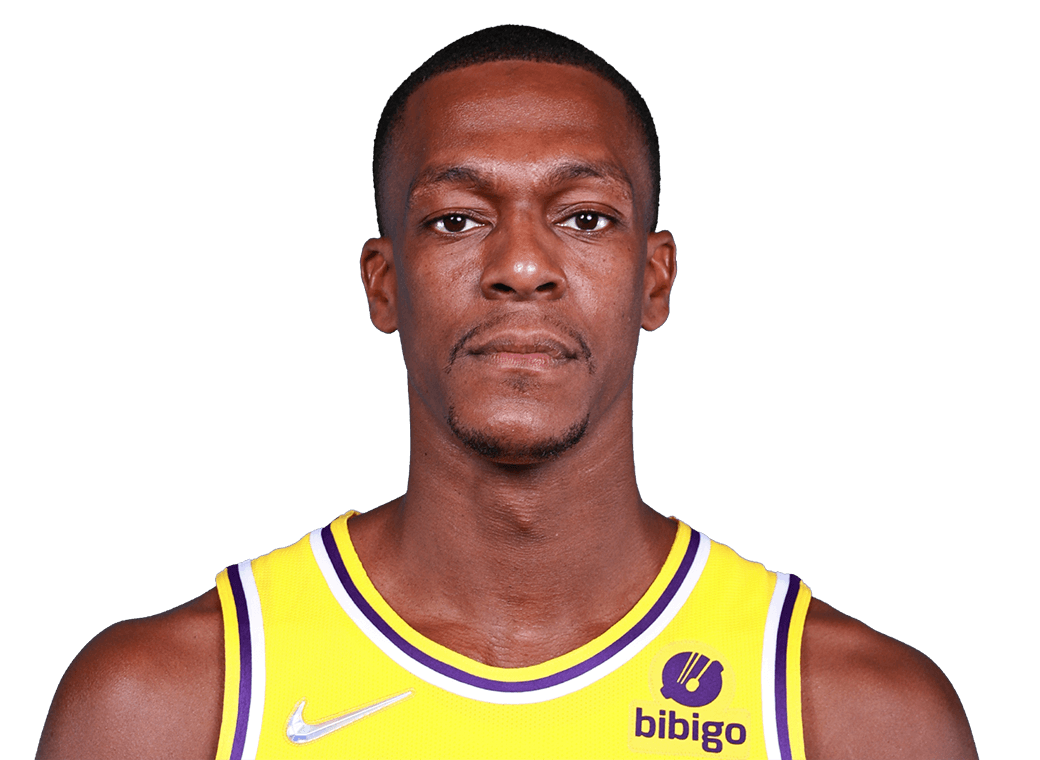
In case you wanna see something gross, here's a link to a video of what Drew describes, including Rondo's comeback → https://youtu.be/1jMDf8Dmv3E?si=3KTQ3gOxXf5ARYxb&t=128
23:50 // A Link to Ten Different TED Talks With Great Inspirational Stories
As promised, here's that link →

25:16 // "Dr. Adams describes her book as a self-coaching guide..."
The book is Change Your Questions, Change Your Life by Dr. Marilee Adams. She describes it as...
a quick-read business and relationship fable about executive coaching and inquiring leadership that illustrates the unique power of asking the best kinds of questions.
Hey, look at that – she put out a workbook, too. That could be really helpful.
And that's Brant Jones, reading Dr. Adams' words, here and 90 seconds later.
27:54 // "Sometimes we call these solution-focused questions..."
Identifying these questions and learning to work with them was a big part of our coach training at The Flourishing Center. Starting a question with what or how will help you find a question that's open-ended and that will lead to more consideration.
Be careful, though, not to simply disguise a suggestion with by stating it as a "what" or "how" question. If ask a friend, "How would it help to listen to Coach Matt's book?" that's only marginally better than just saying "You should listen to Coach Matt's book." If you say "What if you listen to Coach Matt's book?" you might as well have said "I think you need Coach Matt's book."
28:05 // "Some of my favorite questions include..."
- What's possible?
- How could I change?
- What would you prefer?
- What are the facts?
- What are your options?
- What do you make of that?
- What needs to change?
- What would you like to do with that?
- What would you like to experience instead?
- What makes this important?
- What assumptions are we making?
- How am I being?
- What is life trying to teach me?
- What really matters here?
22:13 // "Lever of the day..."
Here is Benjamin Zander's TED talk →
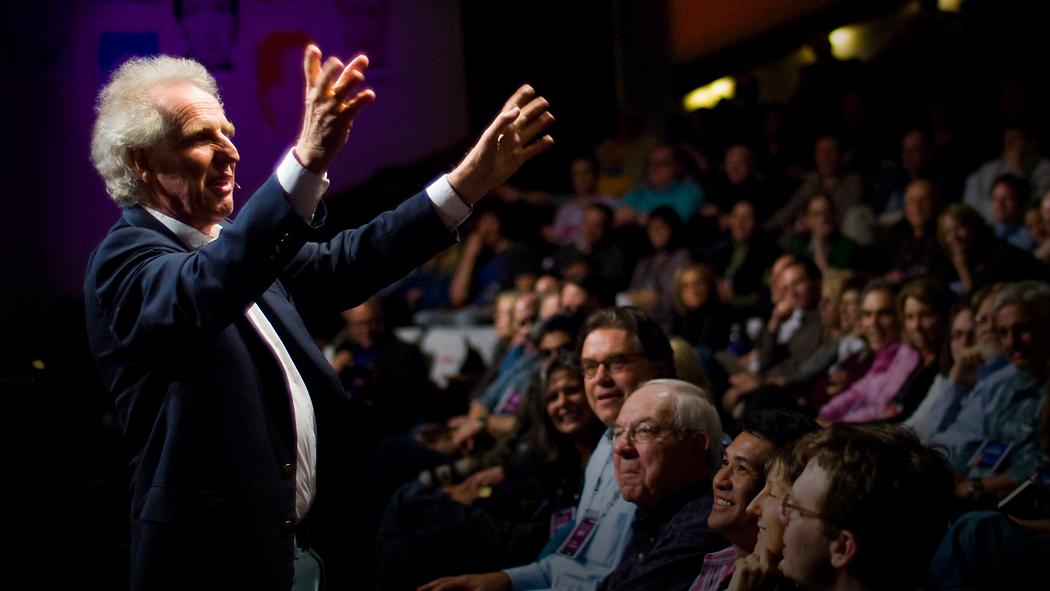
I love it when he asks:
How would you walk or talk, how would you be? If you thought, "Everybody loves classical music – they just haven't found out about it yet..."
That is, I think, a rather strengthening attitude.
29:42 // "Certain responses are better than others..."
Now we get to hear Amy and Jay Rittberger quoting from Rosamund Stone Zander & Benjamin Zander's book, The Art of Possibility. In this beautiful and optimistic book, the Zanders describe twelve practices for awakening possibility.
